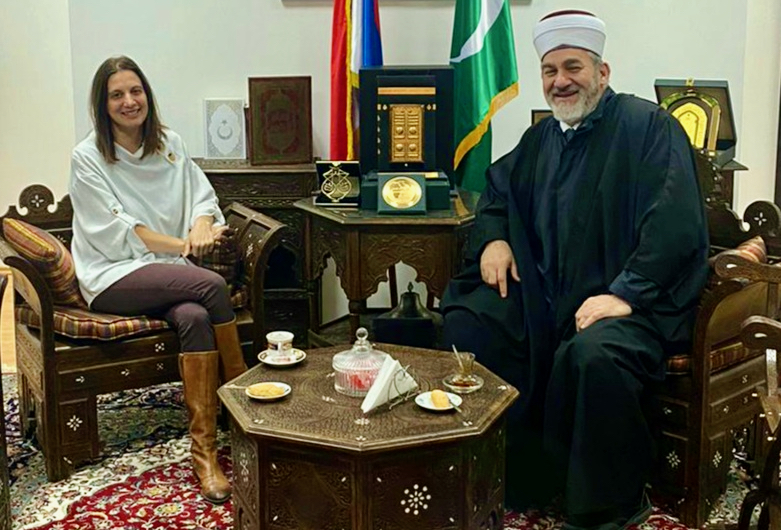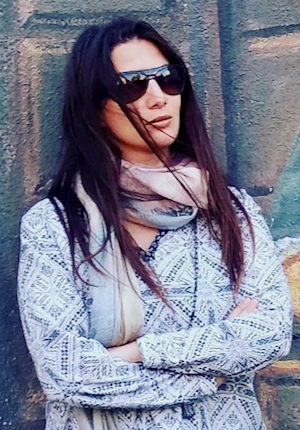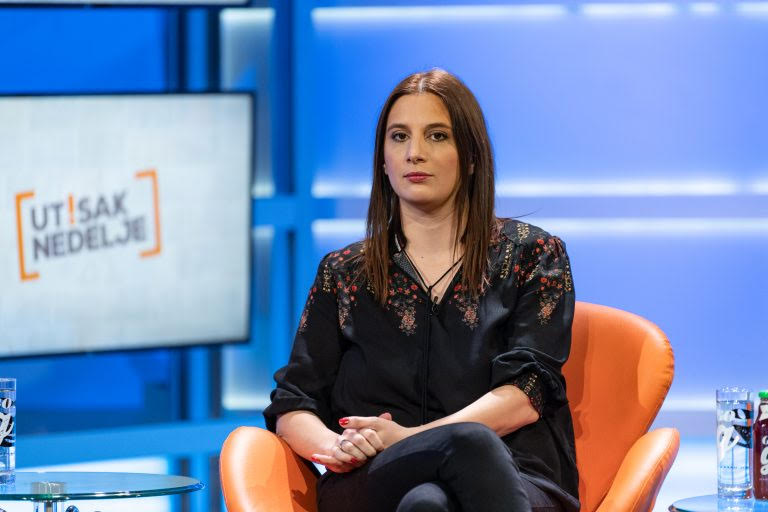A Conversation with IARJ European representative Jelena Jorgačevićin Serbia

EDITOR’S NOTE: IARJ co-founder Douglas Todd, based in Canada, shares this Q-and-A conversation with our colleague based in Serbia.This is part of an ongoing series of profiles of IARJ leaders—board members and regional representatives from around the world. You may also enjoy reading our earlier conversations with Sri Lankan journalist Indeewari Amuwatte and with Pedro Brieger of Argentina.
Jelena Jorgačević is our European regional representative. She is based in Serbia, a middle-income country of 7 million in eastern Europe. In the late 1990s, Serbia was embroiled in a series of wars related to the breakup of the former Yugoslavia. Today, Serbia is a country in which 85 per cent of citizens identify with Orthodox Christian traditions. Currently, her country aims to join the European Union—but the media-freedom index for the country has been dropping significantly in recent years.
Jelena offers some penetrating insights on what it means to be a journalist covering religion in Serbia and the Balkans.
Q:
Have you faced hostility or criticism while reporting about religion?
A:
Who hasn’t?

When I started writing about religion, I was 22 years old. I was a very young woman in the entirely male-dominated world of the religious communities of this region. That used to be challenging, in terms of handling paternalistic attitudes and being ignored. Today it is easier, at least regarding being a female journalist covering religion, in large part because I am now more known in various religious communities.
There can also still be harsh criticism from religious people who consider journalists to be little more than tools for spreading their message. And that kind of criticism might be growing.
Q:
Sounds intimidating. What are some of the major religious issues in your country today?
A:
Serbia is predominantly an Orthodox Christian country. The problems arise in inter-Orthodox Church relationships—between the Ecumenical Patriarchate and the Russian Orthodox Church, which influences the Serbian Orthodox Church. It also has wider social implications.
The fiery issue for the public remains the relationship between the political authorities in the region and the hierarchy of the Serbian Orthodox Church. Sometimes that relationship is very hostile, while at other times it is perceived as too close.
As in the other countries, there are sometimes conflicts over bioethics, particularly between the Orthodox church and many in liberal circles. But the Serbian Orthodox Church is much more heterogeneous than it looks at first.
Q:
Tell us about yourself and which media outlets you have worked for.
A:
I work for the Serbian weekly called Vreme, which is an independent newsmagazine. Vreme was established in the eve of the war in 1991 in the former Yugoslavia. It was started by a group of journalists who did not allow themselves to be the part of nationalist propaganda. On the contrary, Vreme was in that period one of the most trustworthy sources of information and analysis. Although Vreme faces different challenges today, it remains loyal not to those in power, but to classic journalistic values.
I write mainly about religious issues, but also different social issues. Among other things, I have completed a masters degree in religious studies in Erfurt, Germany. I am now working toward a doctorate at the University of Regensburg, where my research deals with believers’ narratives during the time of communism.
Q:
What made you choose religion as a focus of your journalism?
A:
Religion plays an important role in the Balkans. Its influence can be grasped in the social, cultural and, to a certain extent, even the political sphere.
When it comes to the media reporting on religion, coverage has often been too black and white. Religious representatives and the Church have been blamed for all kinds of negative tendencies in society, especially those that are violent, divisive and backward. On the other hand, the Serbian Orthodox Church has been presented as the almost infallible guardian of national identity, which should not be criticized at any cost. These representations lack nuance and context, different voices and issues.
I want to be among those who are trying to fulfill these gaps, to break the stereotypes on all sides, and to work for the sake of the public interest.
Q:
Please tell us about some reporting of which you are proud?
A:
It is hard to speak about yourself in this manner. But let’s say that I am proud when I read some of my articles written years ago. They aim at bridge-building in a predominantly hostile atmosphere. As I mentioned, I feel I succeed when I present the complexity of multi-layered issues and give space to the (sometimes silenced) voices that need to be heard. Finally, as I work for a weekly newsmagazine, when I look at the analyses I have written that pass the test of time, I feel I am walking in the right direction.
Q:
Do you think religion is increasingly occupying the center stage of human affairs across the globe? Why?
A:
When you read the predictions from the 1970s—that religion would fade away from the globe and believers would be some barely noticeable minority—you find it almost naive. I think that religion today is very important. International organizations, states and, above all, religious communities and religious representatives should use their potential for peace. In today’s world, it seems to me that’s what it means to be responsible. The number of believers will increase and decrease in waves, but that could be interpreted as a message to the churches and religious communities.
Q:
How do you think journalists can help in resolving religious conflicts?
A:
Journalists should deconstruct stereotypes. They should be very careful and awake in order not to be used by certain interests. Religion journalists should criticize constructively and not ad hominem. They should think about the public interest and frequently write about positive things, not just stick to the negative ones. They should educate themselves so that they can understand properly the situation and all those involved. They should listen carefully, especially to those who are silenced and being brave enough to oppose some dominant streams, which are against the other.
They should help in preventing, resolving and healing the mistrust that remains after the wars in former Yugoslavia. Journalists are just a small part of the whole puzzle. But an important one.

